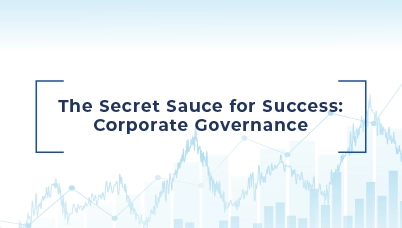What are Debt Mutual Funds?
Posted On Tuesday, Sep 21, 2021
Debt Mutual Funds – The What, How, etc.
| Table of Contents | |
| Sr no | Header |
1 | What are Debt Mutual Funds? |
2 | How do Debt mutual Funds Work? |
3 | Taxation on Debut Mutual Funds |
4 | Difference Between Debt & Equity Mutual Funds |
Have you heard or read about Debt Mutual Funds?
Well, if you have been investing in mutual funds, you must have surely heard about it.
After all, Debt is a one of the markets where investors put in their money in various instruments that basically buy and sell loans in exchange for interest.
There are many debt mutual funds India has.
The returns are generally low when compared to contemporaries like equity funds, but it makes a good investment option for investor with low risk tolerance.
Let us start with the big question.
What are Debt Mutual Funds?
Considered, comparatively, as one of the low to moderately high risk investment vehicles, Debt Mutual Funds are funds that invest in securities that generate a fixed income.
for e.g. corporate or government bonds, government securities, treasury bills and other money market instruments.
What makes these instruments different is that they have a date of maturity that is pre-decided along with a pre-decided rate of interest. Hence, the name “fixed-income” assets.
The USP of debt mutual funds is that its returns are not highly dependent on the equity market and hence generally are not directly affected by its fluctuations.
So, the debt mutual funds India are less volatile than equity markets.
This lowers the risk of market fluctuation that debt mutual funds carry considerably and makes this an option to be considered for investors who are risk averse.
But even for such investors, it is always recommended to know about how debt mutual funds actually work.
You see, a credit rating is assigned to every debt security by rating agencies.
This rating is what helps investors understand the risks with that particular debt security Like for e.g. How likely or unlikely is a debt issuer to default on interest and principal disbursement.
This rating is what debt mutual fund managers look at to pick quality debt instruments, as a higher rating simply means the chances of the issuer to default are less.
Having said that, one should also know about debt mutual funds taxation. Being aware of tax liability gives you a better understanding of how to plan your investments.
Debt mutual funds invest in fixed income assets, across debt & money markets, so you must know about debt mutual funds taxation.
Tax on IDCW Plan:
IDCW erstwhile known as dividend is calculated, declared & paid on the face value of the scheme. Suppose the face value is Rs.10 per unit. After payment of the dividend, the per unit NAV falls to the extent of pay out and statutory levy, if any, TDS as applicable is being deducted from Gross Dividend as per Finance Act 2020 & investors receive Net Dividend.
Tax on Capital Gains:
Tax on capital gains offered by debt mutual funds depend on the period you are invested for in the fund. Hence, the debt mutual fund taxation is divided into two parts.
a. Tax on Short Term Capital Gains: If your holding period in the fund is less than 3 years which means, the gains would be added to your overall income and taxed at the slab rate you fall under. Plus, you are also supposed to pay the applicable cess and surcharges.
b. Tax on Long Term Capital Gains: If your holding is more than 3 years. This is taxed at a flat rate of 20%, irrespective of the income tax slab, you as an investor would come under.
However, you can reduce the tax outgo you have on long term capital gains under debt mutual funds taxation, by the process of indexation. Now, what is Indexation? Indexation is a process that could help you lower the buying cost of units, by factoring in the rate of inflation in the period between the buying and selling of the units.
By now, you have a clearer idea of what is debt mutual fund meaning as well as debt mutual funds taxation.
So, the next logical question is, in a comparison of debt mutual funds vs equity mutual funds, which directions do the scales tip in.
Debt Mutual Funds vs Equity Mutual Funds:
A major part of the mutual funds investment space is covered by Equity Mutual funds. So, information about why you should or should not invest in Debt mutual funds is incomplete without a debt mutual funds vs equity mutual funds comparison.
| Area | Debt Mutual Fund | Equity Mutual Fund |
| Invests in (instruments) | Money market instruments, commercial papers, treasury bills, corporate bonds, government securities etc. | Majorly in equities or other equity related instruments. |
| Expense Ratio | Lower as compared to Equity Mutual funds | Expense ratio is higher than that of debt mutual funds |
| Who Should Invest | Suitable for investors who are risk averse and, who are looking for an option to fixed income investments | Suitable for investors who are willing to take equity market risk and are looking for long term investment. |
| Taxation | If the holding period is less than 3 years, investor is taxed as per his/her applicable income tax slab. For holding period more than 3 years, the tax is a flat 20% plus the applicable cess & surcharges with indexation benefit | For a holding period of less than a year, all capital gains from equity funds are taxed at 15%. Long term capital gains (more than 1 year) of up to Rs 1 lakh is completely tax free but taxed at 10% for all gains above 1 lakh. |
| Tax Saving | Not Possible | You could invest in ELSS mutual funds and save taxes upto Rs 46,800 in a year (for the highest tax bracket) |
If you want to start with a Debt mutual fund investment, you can start with us right here.
Disclaimer, Statutory Details & Risk Factors:
The views expressed here in this article / video are for general information and reading purpose only and do not constitute any guidelines and recommendations on any course of action to be followed by the reader. Quantum AMC / Quantum Mutual Fund is not guaranteeing / offering / communicating any indicative yield on investments made in the scheme(s). The views are not meant to serve as a professional guide / investment advice / intended to be an offer or solicitation for the purchase or sale of any financial product or instrument or mutual fund units for the reader. The article has been prepared on the basis of publicly available information, internally developed data and other sources believed to be reliable. Whilst no action has been solicited based upon the information provided herein, due care has been taken to ensure that the facts are accurate and views given are fair and reasonable as on date. Readers of this article should rely on information/data arising out of their own investigations and advised to seek independent professional advice and arrive at an informed decision before making any investments.
Mutual fund investments are subject to market risks read all scheme related documents carefully.
Please visit – www.quantumamc.com/disclaimer to read scheme specific risk factors. Investors in the Scheme(s) are not being offered a guaranteed or assured rate of return and there can be no assurance that the schemes objective will be achieved and the NAV of the scheme(s) may go up and down depending upon the factors and forces affecting securities market. Investment in mutual fund units involves investment risk such as trading volumes, settlement risk, liquidity risk, default risk including possible loss of capital. Past performance of the sponsor / AMC / Mutual Fund does not indicate the future performance of the Scheme(s). Statutory Details: Quantum Mutual Fund (the Fund) has been constituted as a Trust under the Indian Trusts Act, 1882. Sponsor: Quantum Advisors Private Limited. (liability of Sponsor limited to Rs. 1,00,000/-) Trustee: Quantum Trustee Company Private Limited. Investment Manager: Quantum Asset Management Company Private Limited. The Sponsor, Trustee and Investment Manager are incorporated under the Companies Act, 1956.
Related Posts
-

Be Good. Do Good: The Quantum Way
Posted On Tuesday, Jul 30, 2024
In the business environment, good corporate governance is paramount to the success and sustainability of organisations.
Read More -

What is Fund of Funds?
Posted On Friday, Oct 01, 2021
As an investor, Fund of Funds is something you should definitely know about.
Read More -

Equity Mutual Funds – Are They For You?
Posted On Friday, Oct 01, 2021
Every investor at one point in time has wondered or looked up for what is Equity Mutual Fund meaning.
Read More



